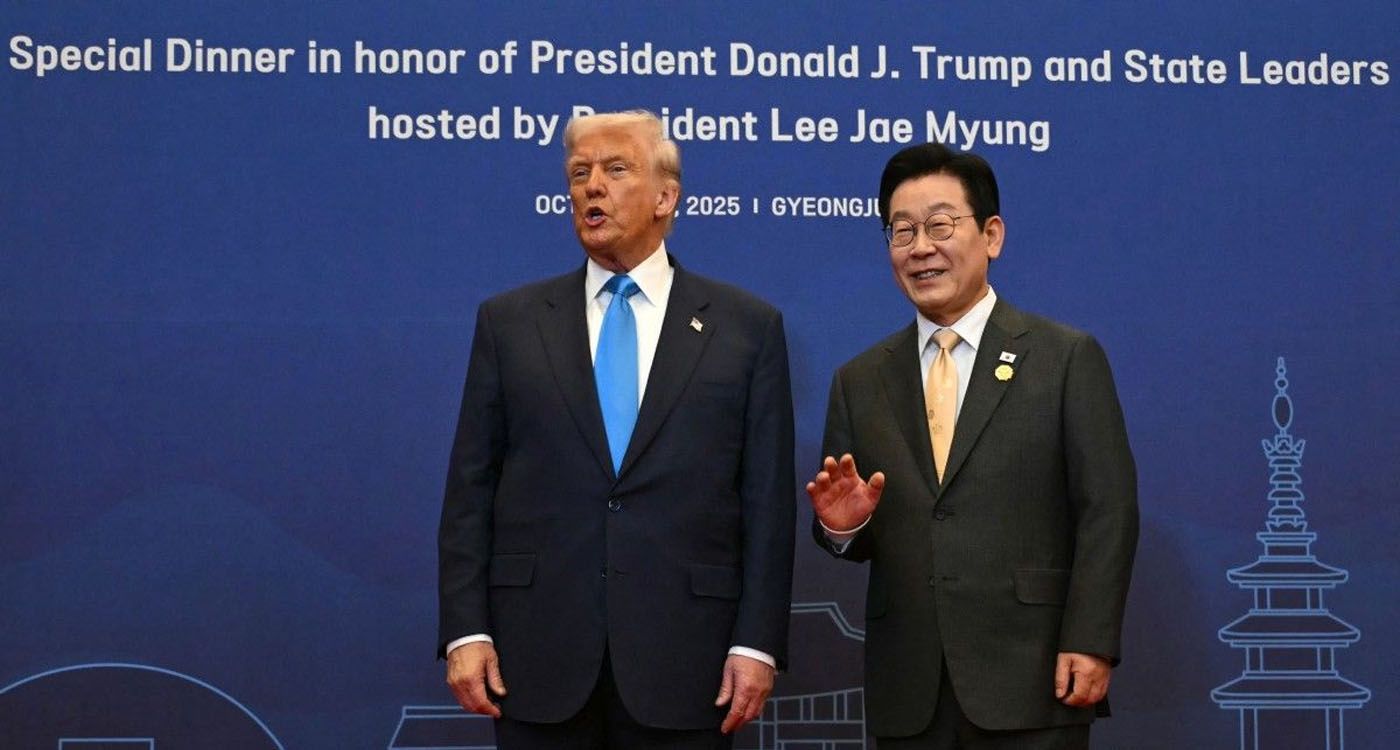
From Handshakes to Deals: Trump Reshapes Asia’s Trade World
Christiane Tager
During a visit to Asia, Donald Trump traded speeches for deals. In Gyeongju, South Korea, the former U.S. president sealed a major trade agreement with Seoul, one that extends beyond economics and is already sending shivers through global markets, from gold to the dollar.
In front of the cameras, Trump highlighted his success: “We struck a deal. We did a lot of different things,” he declared. The agreement lowers automotive tariffs to 15 percent, includes $350 billion in South Korean investment in the United States — $200 billion in cash and $150 billion in shipbuilding — and provides for South Korea to buy $100 billion worth of American liquefied natural gas (LNG) over four years.
According to Reuters, the agreement covers three strategic sectors: automobiles, energy and shipbuilding, which are central to Trump’s industrial revival agenda in the United States. For Seoul, which exports more than half of its vehicles to the U.S. market, it represents a guarantee of privileged access and stability in an uncertain economic environment.
Global Ripples
Behind the handshakes, the ripple effects are already reaching global markets. The U.S. dollar strengthened 0.6 percent against the yen, according to Bloomberg, boosted by renewed investor confidence. Gold, the ultimate safe-haven asset, fell to $3,986 an ounce, reflecting eased trade tensions. In Asia, South Korea’s Kospi jumped 1.2 percent, while Japan’s Nikkei closed up 0.8 percent. Investors welcomed a rare moment of clarity in an often unstable geopolitical environment.
An Economic… and Strategic Deal
Beyond the numbers, this pact is highly geopolitical. According to the Financial Times, Trump’s Asian tour aims as much at countering China’s growing influence as at strengthening allied supply chains in semiconductors, energy, and shipbuilding. “It’s capitalism diplomacy,” an analyst commented: fewer tariffs, more strategic investments.
South Korea, the world’s second-largest shipbuilding power, hopes to take advantage of the slowdown in U.S. shipyards to strengthen its position. In return, Trump revives a slogan he favors: “Make America Build Again,” 2025 edition.
The Global Economy Holds Its Breath
The effects could be long-lasting. By reshaping trade flows, Trump is reviving a bilateral approach that disrupts multilateral institutions such as the WTO. Analysts at the Wall Street Journal note that agreements of this kind “set a precedent for future negotiations with Japan and Vietnam.”
The question is whether these promises will hold or dissolve into the noise of the cameras. One thing is clear: with a stronger dollar, wavering gold, and markets under pressure, the world is reminded that geopolitics can move at the speed of a deal signed in Gyeongju.
In short, Trump once tweeted faster than his shadow; now he negotiates faster than the market. And while traders scramble to catch up, the global economy holds its breath.




Comments